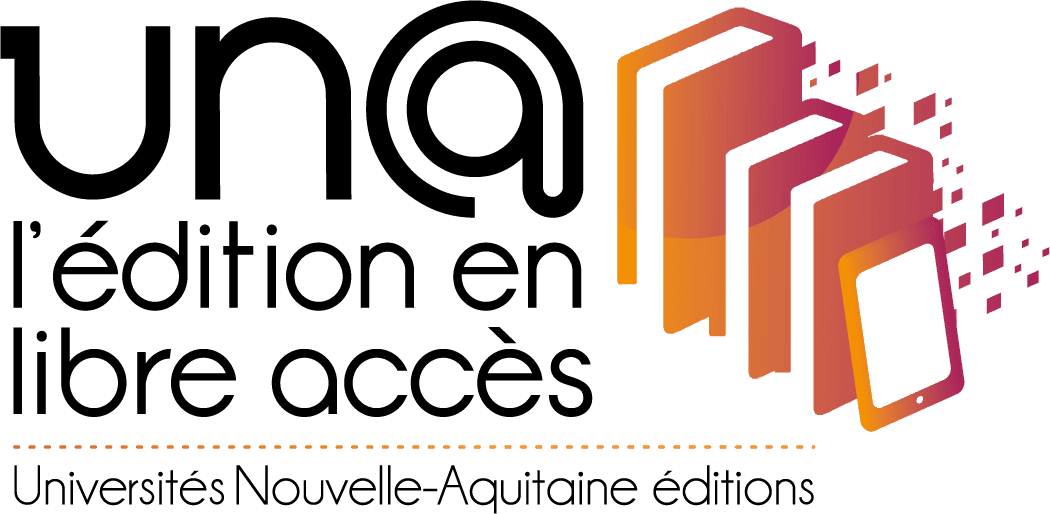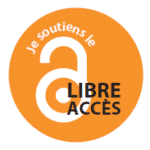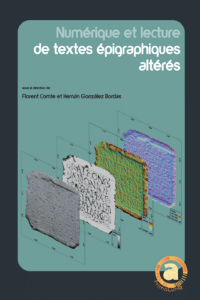UN@ est une plateforme d'édition de livres numériques pour les presses universitaires de Nouvelle-Aquitaine
Auteur : Giovanna Rocca
Facoltà di Interpretariato e Traduzione
Università IULM
via Carlo Bo 1
I-10143 Milano
Giovanna.rocca@iulm.it
0000-0002-8856-3371
Università IULM
via Carlo Bo 1
I-10143 Milano
Giovanna.rocca@iulm.it
0000-0002-8856-3371
Giovanna Rocca is Full Professor of Linguistics in the Faculty of Interpreting and Translation at IULM University, Milan (Italy). Her main fields of research include: Sociolinguistics. Her studies focus mainly on classical languages. These are conducted in parallel with examples taken from modern languages, with a focus on the relation between language and society. Ethnolinguistics. In this ambit of research, her studies focus mainly on the analysis of linguistic structures within various cultural contexts: the Greek and Latin defixiones of the provinces are investigated with special regard to the study of the formulas related to rituals. Text linguistics. She has recently been involved in the editing of an unpublished corpus of Greek inscriptions from Sicily.
Bibliography
- “Nuova lettura dell’iscrizione sul Cippo del Foro”, Alessandria 10, 2016, pp. 3-6.
- “The digital edition of the archaic latin inscriptions (7th-5th century B.C.)”, in: S. Orlandi, R. Santucci, F. Mambrini, and P. M. Liuzzo (ed.), Digital and Traditional Epigraphy in Context, Proceedings of the Eagle 2016 International Conference, Antichistica, 36, 2017, 67-72, §§ 1 e 2.1, 2.2. ISBN 978-88-9377-021-7, DOI 10.13133/978-88-9377-021-7, Editricesapienza.it
- “Due strumenti del sacrificio: Latino olla, Umbro vesklu. Una etimologia, IL 41, 2018, 47-53.
- “Instrumentum inscriptum da Satricum e Acqua Acetosa Laurentina”, in: O. Hackstein und A. Opfermann (hrsg.), Priscis Libentius et Liberius Novis. Indogermanische und sprachwissenschaftliche Studien. Festschrift für Gerhard Meiser zum 65. Geburtstag (Studien zur historisch-vergleichenden Sprachwissenschaft 11), Hamburg, 2018, 145-157.
- “«Charta» nelle defixiones latine”, Epigraphica 81, 2019, 595-605.
- “Lat. sagina”, in: N. Bolatti Guzzo and P. Taracha (ed) “And I Knew Twelve Languages”. A Tribute to Massimo Poetto on the Occasion of His 70th Birthday, Agade Bis – University of Warsaw, Faculty of Oriental Studies: Warsaw 2019 (ISBN 978-83-87111-77-9), 552-559.
- “Ficolos med feced”, AION 9, 2020, 115-124.
- “Nonsense inscriptions in Britannia?”, Poli Femo 20, 2020, 105-115.
- “Echi della voce nei testi religiosi greci e nelle defixiones latine”, Testo a fronte. Teoria e pratica della traduzione 62, 2020, 13-20.
- “Tre malattie nelle defixiones latine delle provincie”, in F. Chiusaroli (ed), Miscellanea di Studi in onore di Diego Poli, Roma, 2021, 1301-1311.
- “Astérix parla in latino e in greco”, in: G. E. Garzone e E. Liverani (ed), Tradurre l’oralità. Aspetti pragmatici e culturali, mediAzioni 31, 2021, A317-A338, http://www.mediazioni.sitlec., ISSN 1974-4382.
- “Errori grafici volontari, involontari e un possibile caso antico di dislessia (Eronda III)” in: A. Calderini e R. Massarelli (ed), EϘO ⁝ Duenosio, Scritti offerti a Luciano Agostiniani, ARIODANTE. Linguistica e epigrafia dell’Italia antica. Università degli Studi di Perugia I, 2022, 831-840.
- “Afrodite muchia”, Aristonothos 18, 2022, 115-125.
- “The Stele Inscription in the Roman Forum: studi americani nei primi quarant’anni dalla scoperta (1899-1933)”, in: Biondi, F. Dedè e A. Scala Ubi homo, ibi lingua. Studi in onore di Maria Patrizia Bologna, Alessandria, 445-455.
- “Un ‘pallium’ dalla Britannia”, Lingue e linguaggi 52, 2022, 1-9.
Mots clés
Ssociolinguistics, Ethnolinguistics, Text linguistics, archaic Latin
The inscription is engraved on a cippus known as the Forum Cippus (fig. 1), from which it takes its name. The Cippus has been mutilated and it is missing its upper part for an unknown extension.


